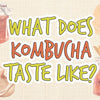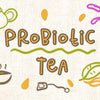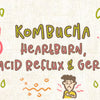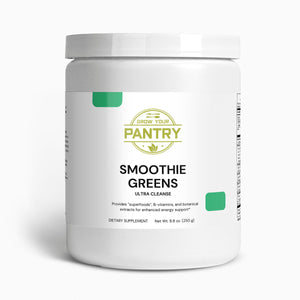How To Pronounce Kombucha? A Simple Breakdown For 5 Languages
A word that seems alien to many, it doesn't come from Latin or Ancient Greek leaving native English speakers unsure of the exact pronunciation — most of the time left to guess.
Every country has a slight variation in name and pronunciation, the generally accepted way to pronounce kombucha is "kom - boo - cha." Be warned: around the world the word kombucha can mean several different things.
Several common mispronunciations of kombucha:
-
"Cam-boo-cha"
-
"Kon-boo-cha"
-
"Kom-bu-ka"
If you've pronounced it like this, don't worry, you're not alone!
Etymology Of Kombucha
Fermented tea, comes from China dating back over 2000 years. When archaeologists found evidence for brewing, they also found a script that contained a name of the fermented drink. The fermented drink name translated to "Tea For Immortality." Now famed for its health benefits, the meaning seems very accurate!
The evidence may be the oldest recorded writing of a fermented tea drink. However, this isn't where the name kombucha has come from. To find that out, we must look at the two leading theories behind the etymology of the word, one very logical the other more of a mythical tale.
The mythical tale: claims the name kombucha originates in Korea. In folk law, Dr. Kombu gave a Korean King the fermented tea. Hence the first half of the word "kombu-cha." The second half, "cha," is very similar to chai - when translated into English chai means "tea." The fermented drink took the name "kombucha," after Dr. Kombu and the name for tea "cha."
The more logical explanation: "It has been hypothesized that English speakers mistook the Japanese word kombucha to mean fermented tea" (from Wikipedia). English speakers when in Japan may have heard the word pronounced "kon-bu-cha" and instead of a direct translation as kelp tea mistook it for fermented tea. Fast forward, and now the term kombucha has stuck.
Although an ancient drink that has been consumed throughout the world, the origin of the mythical elixir's name remains contested.
Pronunciation Of Kombucha In Other Languages
Country |
Spelling |
Pronunciation |
English |
Kombucha |
Kom-boo-cha |
Japanese |
昆布茶 |
kor-tech-e-nor-ko |
Chinese |
红茶菌 |
Hong-cha-chin |
French |
kombucha |
Kom-bu-chaa |
Spanish |
kombucha |
Kom-bu-chaa |
Understanding how kombucha is pronounced in different languages could be evidence that it originated in one area or region.
Japanese - In the Japanese language, the word "昆布茶," pronounced "kon-bu-cha" means kelp tea. The closest word to fermented tea is "紅茶キノコ" roughly pronounced "kor-tech-e-nor-ko." If you're in Japan and ask for kombucha, you may be surprized with kelp tea!
Chinese - In Chinese "红茶菌" is pronounced "Hong-cha-chin." Not so similar to the English pronunciation.
French - In French, it's spelled the same and pronounced only slightly differently. "Kom-bu-chaa." Of course, regional accent and anomalies exist, but this gives you a general idea.
Spanish - Sharing the same as in English and French "kombucha" is kombucha!
From these examples, you can see that the Latin languages all have the same pronunciation, so if you're on holiday in Europe it's easy to remember kombucha!
How To Pronounce Other Kombucha Related Terminology
Scoby - Phonteically wrote it's "sco-bee," two syllables. A common mispronunciation would be "scooby." The same as the popular television program: Scooby-Doo!
Kahm Yeast - Easy to pronounce "kahm" is said as "calm." The same pronunciation but with very different meanings.
Jun Tea - Pronounced precisely how it's written "J-un." Jun is a fermented tea, made using honey instead of sugar. A delicious alternative to cane sugar.
Conclusion
The origin of the name may be disputed, but worldwide everybody knows the drink. In most countries, it's called and pronounced the same. All countries have one thing in common: if you order kombucha, you'll get a refreshing beverage!







